
A feminist reading of a stunning memoir
I am writing this at a time none of us ever imagined might happen. The Supreme Court in America is challenging and seeking to reverse the Roe versus Wade law on abortion. After decades of feminist energy, it's almost unimaginable that this could ever be possible. And one of the reasons for mentioning this lies in the title of poet Jan Kemp's memoir, Raiment, exploring her childhood and university years, from 1949 to 1974.
After Jan’s husband virtually forced her to have an abortion, stating it did not suit their hippy lifestyle, and more importantly, his freedom, she felt deeply pressured to go ahead with this act, despite her own misgivings about it, common at the time.
Earlier in the book, she thanks a friend for sending her a list of poem titles, stating they were her children. She writes, “And it was true – it was the sounds in my head I heard, listened to and sometimes wrote down, escaping from Papatuanuku, who as the concept of the Earth Mother I adored, but to whom I did not want to be tied physically to by bringing forth offspring to offer her. I was hugely grateful when [a friend] sent me a homemade Christmas card onto which she’d written the titles of all my poems up to that date, and inscribed Dearest Kempi, Happy Christmas, with love from all your poems. It was a real eye opener to me. My poems were my offspring.”
Later in the book, after she has endured a horrendous attempt at abortion under duress that went wrong, sending her back into the abortion den a second time, after the same husband took her on a beach holiday that went terribly sour when she bled, she writes: “And I had my education, such as it was, and my poems. That last was something no one could take away from me. That could never be aborted. For they came to me without my asking and they were my gift to the world. I would bear them all, whatever that meant, wherever it took me, always. I would never murder them, nor let anyone else either. I would stand up for them, read them, present them and represent them, whenever they needed me to do so. That was my vow. They were a part of me, my raiment.”
Some might argue this is a plea against the right for abortion. Or it could be a plea for the right to be honoured for all the ways we can give birth, creatively as well as in actual motherhood. I'm convinced of the latter by the content of Kemp’s earlier statement about being so pleased that a supporter of her poetry might honour her poems with the notion that they are, in fact, her children, whom she has given birth to and nurtured. I leave the wider argument for each reader to assess.
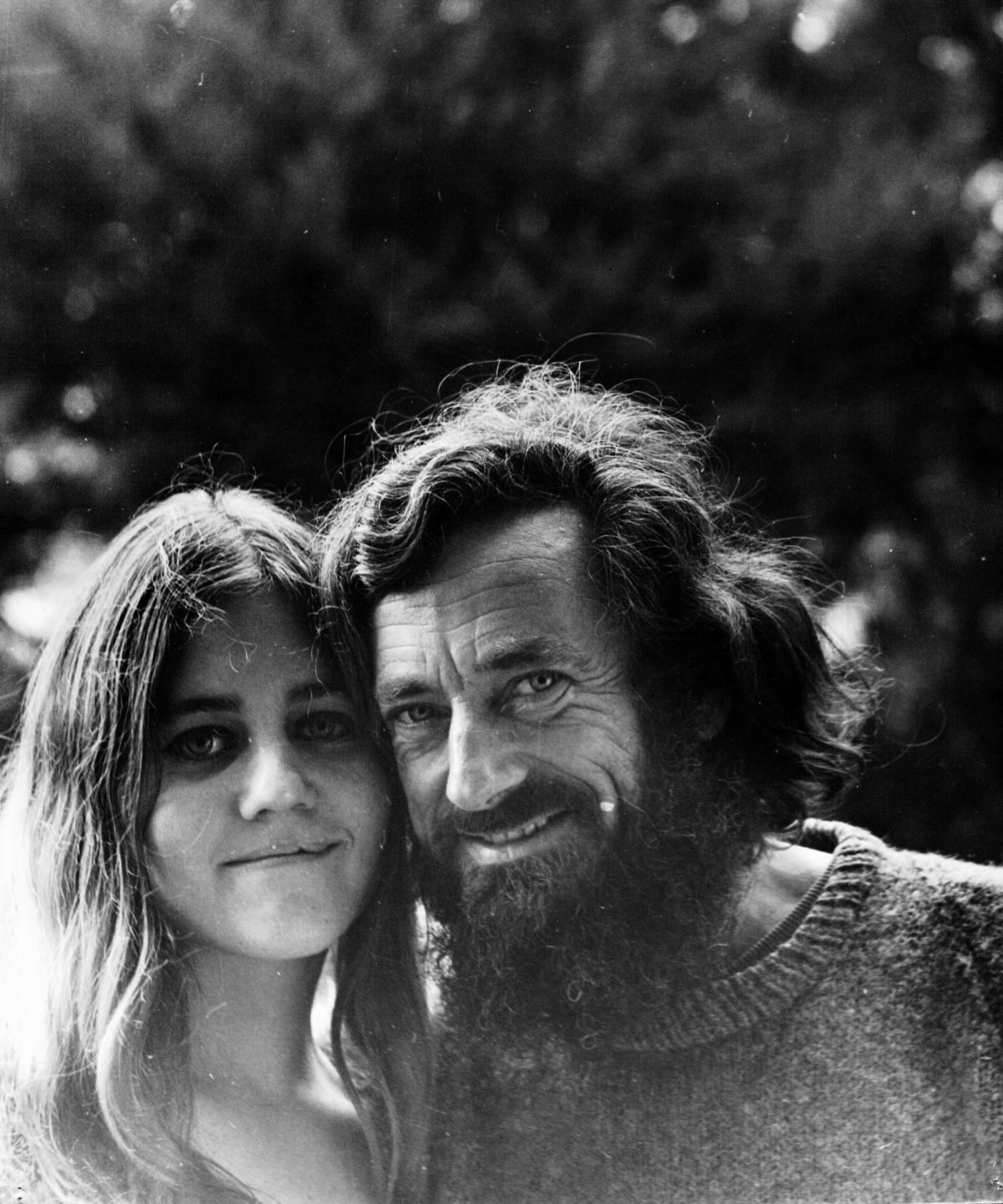
It's a very kind, very nice memoir. Kemp has a stunning memory for details of growing up in semi-rural New Zealand in a caring family. It's also a memoir cut with tales of the damp dark days of university flatting, trials with sex and drugs and rock'n'roll, or in this case poetry and the School of Philosophy. It documents the times where poets such as Allen Curnow, Karl Stead, Mac Jackson and Riemke Ensing taught us at university, and her trials as the only woman poet in a male-dominated scene.
These are tales of not being taken seriously but forging forward with strength and audacity and being determined to be counted as a poet, despite her gender. You have to have lived through those times to even imagine how hard this was for Kemp and others. I taught in the Auckland University English Department at the time and there were 30 male lecturers, two women and a scattering of female junior lecturers. There were sex scandals and sexism. And racism. It was the time of Tim Shadbolt and his infamous arrest for saying "bullshit" on campus and getting Germaine Greer to say it onstage too. I was in the audience that day. It’s laughable now you could be arrested for this. But it happened.
The New Zealand that Kemp describes in Raiment is vividly brought to life in all its blandness, sameness, sense of security, but biting at the edges is the beginning of a change in attitudes, a new sense of a sexual revolution. The second wave of feminism was still in its infancy but starting to be heard. It was radical for a female poet to be touring with male poets and for her to claim her place on the stage as an equal. Kemp admits she was no feminist warrior. But she was also determined to act on the same stage as the male poets and be respected as a writer. That helped pave the way for many others to follow.
She acknowledges the influence of a great New Zealand poet of the time who also taught at Auckland University: Riemke Ensing. Ensing was a strong, powerful woman with a commanding presence and was an important poet and tutor at the university. She encouraged other women to be creative and write, and stood her ground on a campus full of male lecturers, authors and poets. Her influence on Kemp’s work was strong and it will be interesting to see how this develops in the later series of this memoir.
Massey University Press has created a beautifully produced hardback book which will remain as an important testament to the history of New Zealand literature and the beginning of a new era where women’s voices could be heard on the stage as equals. It's unusual for publishers to include so much poetry in a non-fiction book but it plays to Jan Kemp’s strength as a poet and the text is all the more rich for its inclusion.
Kemp is extremely honest in this book. She never seeks to push her own ego or shrinks from the responsibility of telling things as they really are, with all her insecurities intact. She was a poet on the cusp of exploring a world which most of us had been banished from or never imagined being able to explore, except in our dreams. Her work gave a voice to many women who would later find the courage to speak their own realities in their own voices. Women who pushed the boundaries even further and were not afraid to be outspoken feminists.
It was not until the 1990s, many years after this memoir ends, that I was invited by New Womens Press, run by Wendy Harrex, to edit the first anthology of New Zealand women’s writing. This lead to the first Australia / New Zealand lesbian anthology and a series of five anthologies of New Zealand women’s literature, with Geoff Walker at Penguin taking up the reins for Subversive Acts, featuring one of the most reprinted stories commissioned by us, Keri Hulme’s "Hinekaro", which was later made into a film by Chrissie Parker.
I first reviewed Jan Kemp’s work for Landfall. Her poetry collection Against the Softness of Women struck me then as a brave new world opening out for women writers. Thankfully, writing by women has flourished in Aotearoa since then and through those crucial anthologies in the 1990s. The full context and history of this literary movement has yet to be written and integrated into the annals of New Zealand literature. But memoirs are gradually beginning to fill this space and speak from these different perspectives. Raiment is but one of these crucial books. Let’s hope there are many more.
Raiment: A memoir by Jan Kemp (Massey University Press, $30) is available in bookstores nationwide. The review by Cathie Dunsford (she's the friend who sent Kemp the Christmas card, as detailed above) concludes our week-long coverage of the book (on Monday, a review; on Tuesday, an excerpt; yesterday, a stunning evocation of the times Kemp also writes about) - but wait, there's kind of more. Below is a range of photos taken of the famous 1979 poetry tour of Jan Kemp, Sam Hunt, Hone Tuwhare, and Alistair Campbell. The photos appear on the New Zealand Electronic Poetry Centre site.
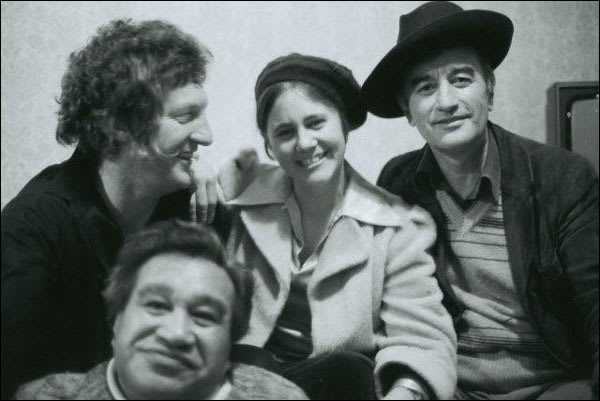
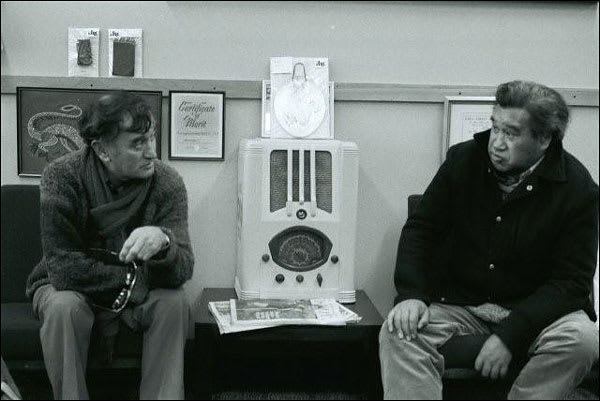
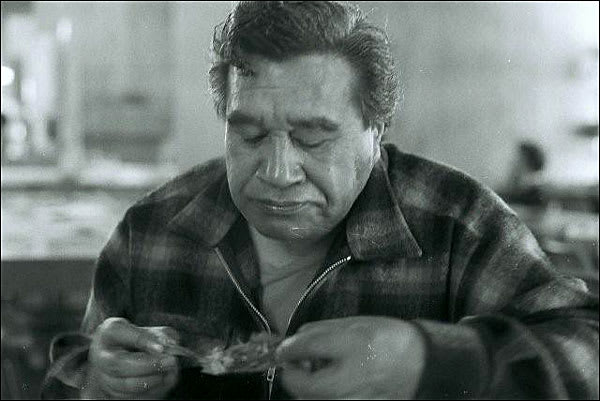
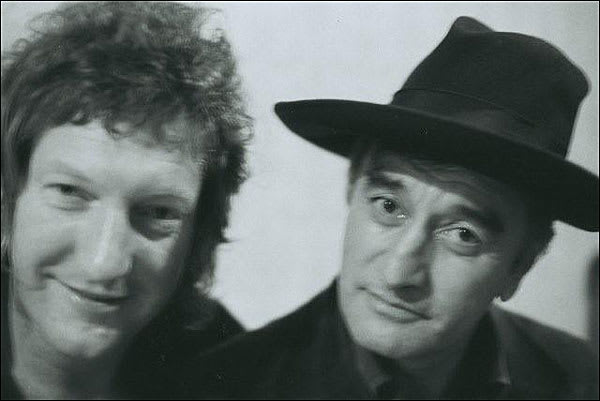
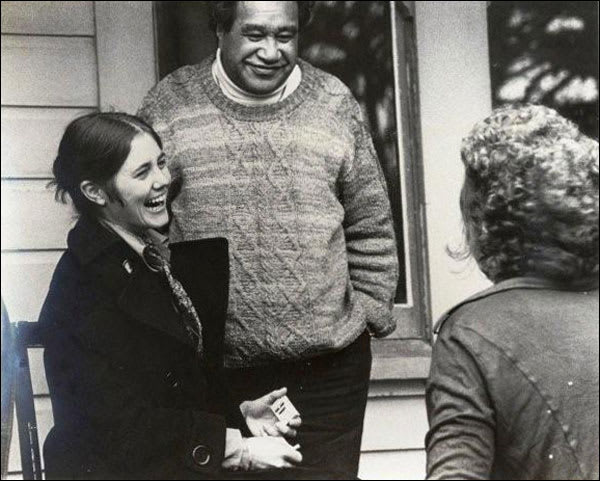




.jpg?w=600)


